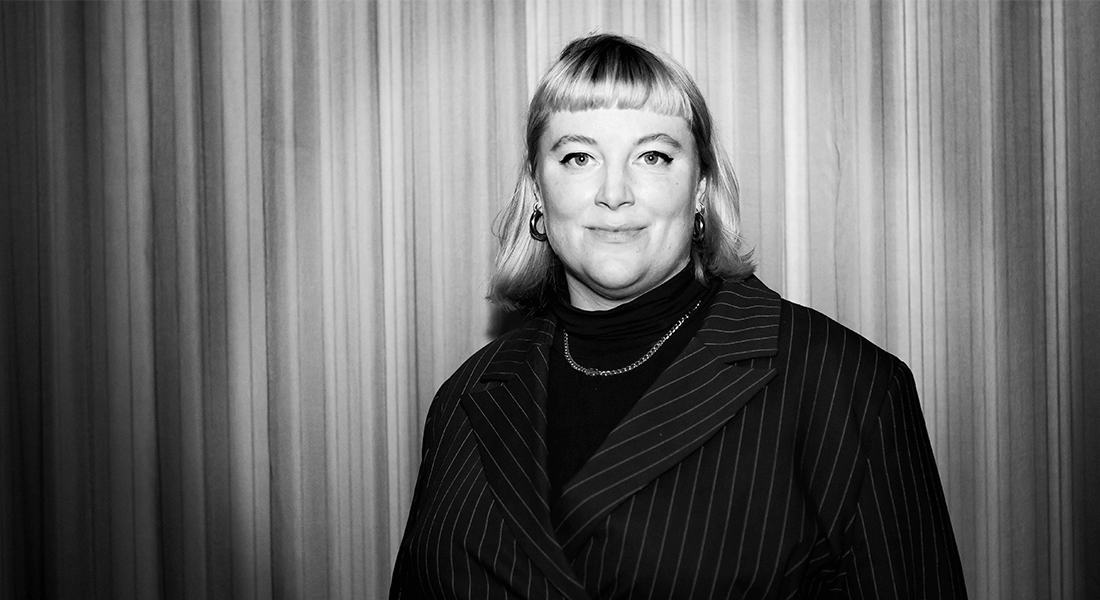Anita Gohdes “We need to pay more attention to authoritarian use of surveillance”
Most people do not pay attention to digital surveillance, because we do not know the consequences it might have. But according to Anita Gohdes governments need to pay much more attention. Selling this type of technology to a repressive regime is basically being complicit in the actions that they're doing, she says.

Anita Gohdes, professor of International and Cyber Security at the Hertie School in Berlin, is an expert in technology's intersection with security and authoritarian control. She thinks we should be paying more careful attention to the massive surveillance happening every where in the world. It might not feel important today, but surveillance can quickly turn into a threat if political winds change, she explains.
We met Anita Gohdes during The Tech Policy Days where she shared her views on the most important challenges in the tech policy field, that we should be paying more attention to.
What does 'digital authoritarianism' entail in your research?
Authoritarian tools or uses of technology doesn't mean that they're only used in authoritarian countries, but it's a specific way in which technology is used to either control people's access to information, control what they're able to say, control what they see, be able to monitor what they're saying, and especially in the authoritarian context; to influence electoral outcomes as well.
Surveillance is very useful for identifying people who could potentially become problematic for a regime. And so we see that there's a link between the use of surveillance technology, giving people access to the internet and targeted forms of repression. So singling people out, bringing them in, interrogating them, disappearing them, and ultimately killing them. That is how technology is being used as a form of oppression or a weapon.
What is the biggest challenge in your field of research?
When information is censored or the internet gets shut down, it is something we all hear about in the news. But we only hear about surveillance when something goes wrong. When there are activists who uncover the Pegasus files, when there is an Edward Snowden who leaks surveillance. And so we have a very incomplete picture of surveillance.
When information is censored or the internet gets shut down, it is something we all hear about in the news. But we only hear about surveillance when something goes wrong.
We don't see surveillance, but the implications are strong. People get targeted, and people get singled out. The authorities come by and visit you, maybe they ransack your office if you're a civil society organization. So we need to pay more attention to that. We need to pressure governments to be very transparent about the technology they're using, because a lot of this technology is actually in democracies rolled out as a form of preventing crime, of dealing with other types of issues that aren't related to political issues.
I think we need to have much more transparency about that. Governments and EU needs to really pressure companies that produce these types of technologies to be absolutely crystal clear about who they're selling it to. Because selling this type of technology to a repressive regime is basically being complicit in the actions that they're doing.
Governments and EU needs to really pressure companies that produce these types of technologies to be absolutely crystal clear about who they're selling it to. Because selling this type of technology to a repressive regime is basically being complicit in the actions that they're doing.
Another challenge is also that it is really difficult for researchers to get access to data because most of the big technology companies are private and they have very little interest in sharing data with us.
Why do you think surveillance doesn’t get more focus – in the public and political debate?
Most of us don't really know the downside of surveillance, so we don't understand the consequences. And also, we construct this idea of ‘the others,’ a group that we do not belong to. So we say, ‘I don't mind if people see what I do online, I'm not like ‘the others.’
But so many countries are currently moving towards somewhere between authoritarianism and democracies. The difference between being a fully democratic country and one that is kind of moving towards being an illiberal democracy can be one election. Voting on a party that doesn't want to uphold a liberal country, means you very quickly can become that ‘other.’
People say they don't mind being surveilled, but in the US you might live in a state where abortion becomes illegal. And suddenly you might need an abortion or someone you know might need an abortion. And you can't get that information without someone following you.
I think this construction of ‘the other’ is what makes us feel like this technology is not a big deal.
You were part of the first edition of Tech Policy Days – what is the main take away for you?
What was surprising for me was to hear how positive many of the people from private companies have spoken about the GDPR. A lot of the discussions that I've followed about GDPR have been very dominated by big US tech, which have been quite negative. But there seems to be a way in which this regulation can be beneficial for European companies. By abiding to these rules, they can make their product more attractive. That was a positive surprise for me.
